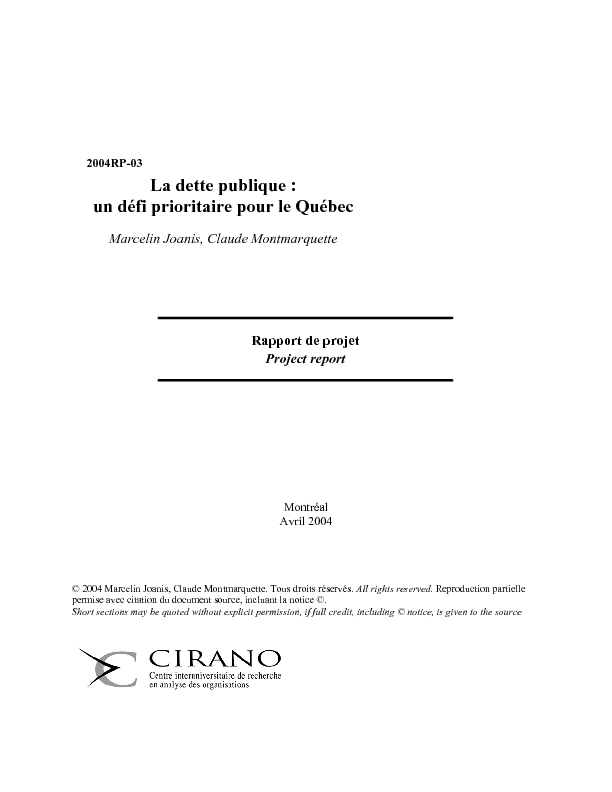La dette publique : un défi prioritaire pour le Québec
This paper first recalls the high level of public indebtedness in Quebec. A literature review and a description of the evolution of the problematics, carried out by the means of a retrospective analysis as well as a projection exercise, show (1) the "uncoupling"" of the public finances that occurred from the mid-1970s to the early 1990s; (2) the current dynamics of public finances and indebtedness; and (3) the lack of a scientific consensus regarding the debt targets and policies that governments should pursue. The paper analyzes and uses the ""traditional rule"" for indebtedness, which states that government outlays generating benefits that are spread over time should be funded through borrowing. The paper then concludes that, given the current situation, the Quebec Government should set a positive budgetary target each year to provide for some leeway in case of an economic slowdown, and that unused monies from this reserve be earmarked for debt paybacks as well as contributions to a stabilization fund intended to counteract future fluctuations. The sale of public assets is also considered, but only insofar as this leads to an improvement in the government's financial situation."
[ - ]




